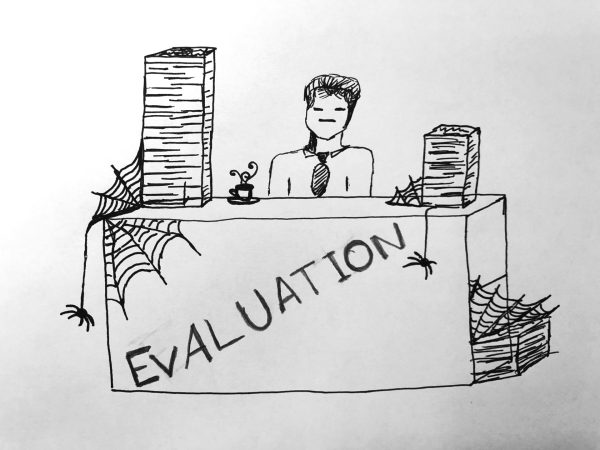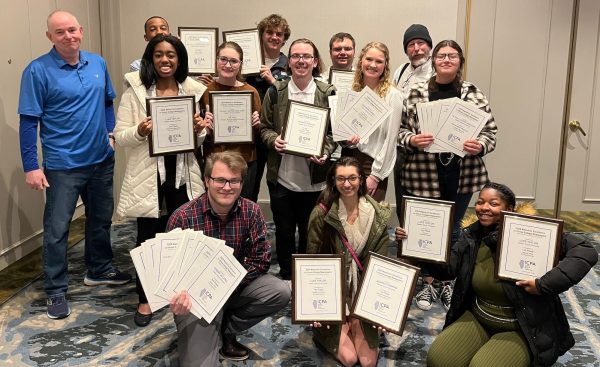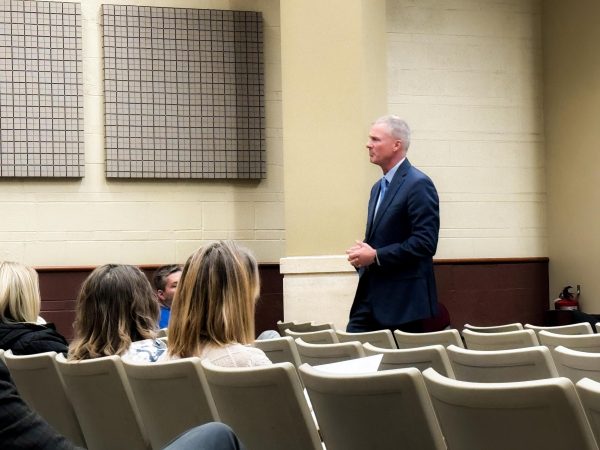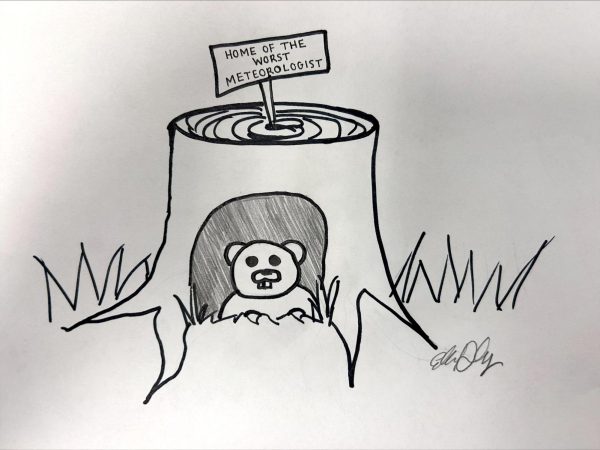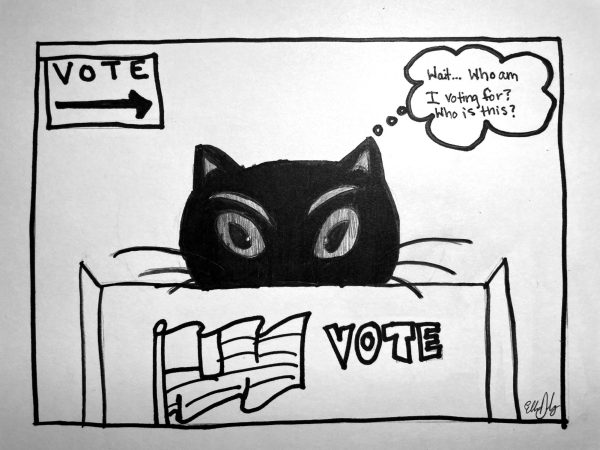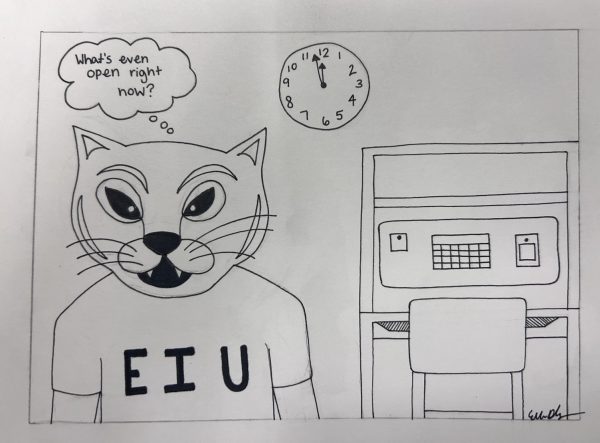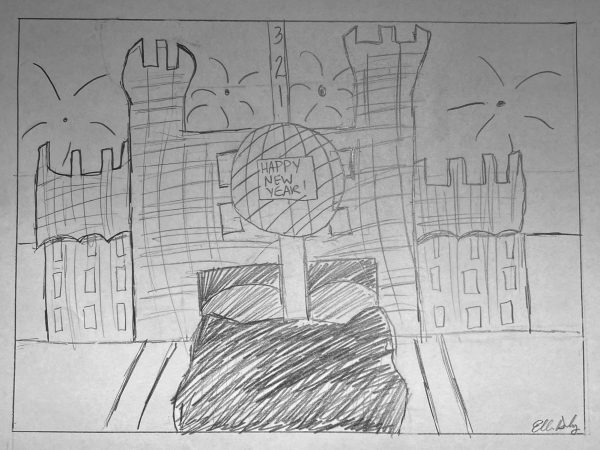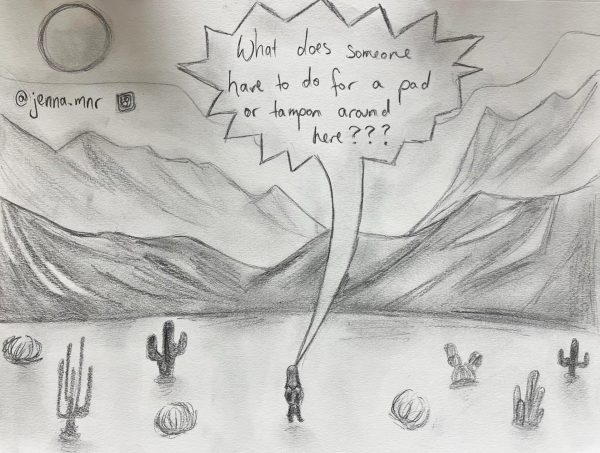Editorial: Learn to consume your news wisely
November 11, 2015
News is a tricky business. If nothing else, good journalism is a mutually beneficial relationship between reporters and the community they serve.
Reporters rely on the community to create news for them to cover, and the community relies on reporters to keep them informed of important issues and events. But neither party is perfect.
News consumers are often conflicted on how to feel when a trusted news outlet makes a misstep or gets something wrong.
For instance, Eastern President David Glassman addressed the university earlier this month about a statement he made that he said was taken out of context in a Chicago Tribune article. The Chicago Tribune is widely considered to be one of the newspapers that sets the standard for print journalism.
People might feel that if they cannot read the Tribune with complete confidence, then they cannot trust anyone’s coverage. Anger comes forth from both ends in this type of situation.
Reporters get frustrated when the community responds with backlash without fully understanding the functions of the paper, while readers become disillusioned by the barrage of sensationalist media coverage they are bombarded with on a daily basis. What it takes to make this relationship work is understanding.
In a Nov. 2 article titled “University funding looms as pressure point in Illinois budget standoff” on the Tribune’s website, Eastern is used as an example of a smaller school having more difficulty without a budget than larger schools.
The article explains that at smaller schools where enrollment has declined in recent years or fundraising is more difficult, the lack of funds makes more of an impact, as evident by layoffs and furloughs, cuts to athletics departments, degree program consolidation and the use of cash reserves.
“At Eastern Illinois University in Charleston, President David Glassman recently told lawmakers that without a cash infusion from the state, the school may have to shut down during the spring semester,” the article states.
Glassman said in a later email to the campus community that the statement he made during a state budget hearing was “reported out of context.” Essentially, Glassman was asked to give a worst-case scenario.
“The statement was designed to emphasize the seriousness of the budget situation for Eastern Illinois University and higher education in Illinois,” he said in the email.
While this article may have contributed to the perpetuation of “rumors” on social media that Eastern would close in the spring, it should be noted that the Tribune is not to blame.
More background in the story would have explained that people behind the scenes at Eastern are working hard to make sure that the university stays afloat through the roughest storm.
However, the story wasn’t about Eastern; it was about higher education across the state being a point of interest in the ongoing battle for a budget.
The Tribune did not report that Eastern would close; it reported what Glassman said—that it “may” come to that if the state does not get its act together. The News reported a similar message from Glassman in October.
State Sen. Scott Bennett asked Glassman how much longer the university could continue operating given the current budget impasse during the State Senate Higher Education Committee’s budget hearing on Oct. 5.
“I don’t know a date or month, but I can say that we would be somewhere in the spring semester,” Glassman said in the article.
He went on to say that it would be almost “unthinkable” for the state to allow the budget issues to carry over into the spring.
It’s possible, even probable, that those who spread the rumor only read a few lines from either story, or heard about it from someone else.
As consumers of the news, it is imperative to be an active reader—ask questions, cross-reference with other sources, and contact the editor to report inaccuracies or misrepresentations.
Readers should also understand local news agencies are more likely to have their best interests in mind than national outlets.
It is not that others cannot be trusted, but Tribune reporters are more likely to know the ins and outs of the Chicago City Council, while reporters from The News or The JG-TC are intimately familiar with the Charleston and Eastern community.
One story is not likely to provide the whole picture on any issue, so your search for information should not stop at one paper or website.
The daily editorial is the majority opinion of the editorial board of The Daily Eastern News.





































